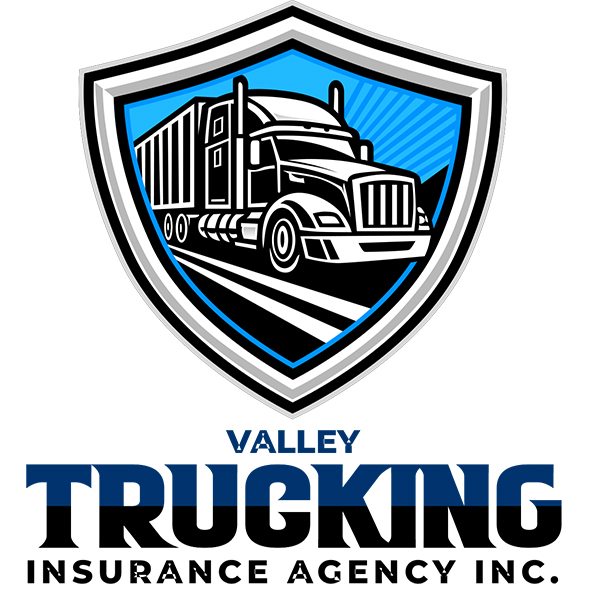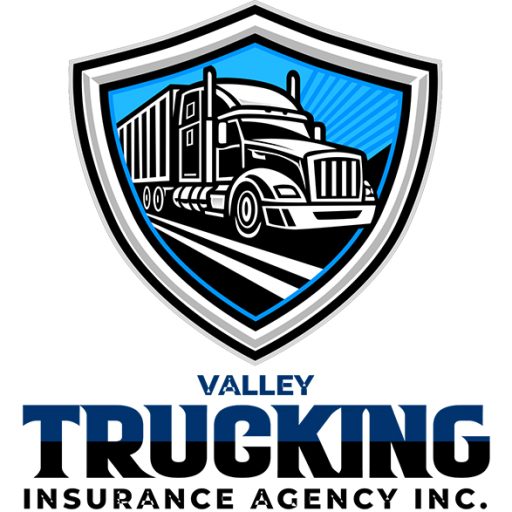Commercial Truck Insurance coverage is critical to your business
It’s in the news. You hear more and more about massive jury awards that result in a business’ financial ruin.
Most business owners never expect to encounter a loss that exceeds the limits of the coverage they have to manage accidents, mistakes and injuries—also known as liability insurance—but unfortunately in today’s business environment, it happens too often.
A large loss could impact the business success you’ve worked so hard to achieve and destroy your hopes for a bright future.
Valley Trucking Insurance Agency can help you protect the assets you have today by providing added coverage where you need it most. We can help you build a tailored commercial truck insurance solution that meets the specific needs of your business.

Am I Required to have Workers Comp?
Business is inherently risky, but General Liability insurance protects against many known and unknown risks.
Simply put, CGL guards you, your business, and your employees from claims involving bodily injury or property damage born out of your business operations. These policies cover the expense of out-of-court settlements, litigation and judgments awarded by courts. Often times CGL is paired with BPP (Business Personal Property) coverage in a BOP (Business Owners Policy).
- Here are a few things General Liability Insurance typically covers:
- Customer slipping / falling on your premises
- Erroneous delivery of products resulting in damage
- Actions of a driver while representing your company and on the premises of others, such as: loading docks, truck stops, etc.
- Lawsuits, investigations, and settlements
- Injury damages
- Advertising/Copyright claims
- Libel and slander exposures
- Fire on rental property due to your error
- Contractual requirements of your clients
Workers Comp Pros & Cons
Pros
Employee medical expenses and lost wages are paid through the Workers’ Compensation system.
Benefits are protected by a guarantor or guaranty association.
Employees hold the burden of proof in an work-related injury lawsuit.
Except in certain cases, workers cannot win lawsuit judgements for punitive damages or pain/suffering. This significantly reduces liability on the part of the employer.
Plans are relatively simple – if an employee is injured on the job, coverage can begin almost immediately and without confusion.
Cons
Typically, employer costs are higher than those associated with Occupational Accident Insurance
How Much Is Workers Comp?
Pros
Employee medical expenses and lost wages are paid through the Workers’ Compensation system.
Benefits are protected by a guarantor or guaranty association.
Employees hold the burden of proof in an work-related injury lawsuit.
Except in certain cases, workers cannot win lawsuit judgements for punitive damages or pain/suffering. This significantly reduces liability on the part of the employer.
Plans are relatively simple – if an employee is injured on the job, coverage can begin almost immediately and without confusion.
Cons
Typically, employer costs are higher than those associated with Occupational Accident Insurance
Workers Comp Pros & Cons
Pros
Employee medical expenses and lost wages are paid through the Workers’ Compensation system.
Benefits are protected by a guarantor or guaranty association.
Employees hold the burden of proof in an work-related injury lawsuit.
Except in certain cases, workers cannot win lawsuit judgements for punitive damages or pain/suffering. This significantly reduces liability on the part of the employer.
Plans are relatively simple – if an employee is injured on the job, coverage can begin almost immediately and without confusion.
Cons
Typically, employer costs are higher than those associated with Occupational Accident Insurance
Occupational Accident
Occupational Accident Insurance is an alternative to Workers’ Compensation. It is designed for those wanting employee injury coverage, but not able to afford Workers’ Compensation or those who hire owner operators or independent contractors.
This coverage is available to both fleets and independent truckers. It offers coverage for medical insurance, life insurance, and disability insurance for injuries sustained on the job.
The Occupational Accident policy provides coverage for claims up to a specified limit and may help provide coverage for owner-operators or other drivers who qualify as independent contractors and are not always considered “employees” for Workers’ Compensation.
Occupational Accident insurance cannot be considered as a complete replacement for Workers’ Compensation coverage. However, since Occupational Accident coverage has specified limits, deductibles, and coverage options it can be less expensive than traditional Workers’ Compensation coverage.
In South Dakota, Occupational Accident insurance will typically satisfy contractual “Employer’s Liability” requirements for many of the clients you contract with.
Occupational Accident Pros & Cons
PROS
Occupational Accident plans typically cost the employer less than coverage under workers’ comp plans.
These plans offer the employer the option to control or limit the amount of coverage for employees.
Occupational Accident plans often have more flexibility than their workers’ comp counterparts, especially for the employer. Plans can include coverage for survivors benefits, temporary or permanent disability, or accidental death if the employer so chooses.
Occupational Accident plans can cover both W-2 employees and 1099 Contractors.
Cons
Under these plans, the employer bears the burden of proof in an injury lawsuit brought by employees.
Employees can also win judgements for pain/suffering and punitive damages. These judgements may have certain limits. Occupational Accident significantly increases employer liability.
If the injured employee’s medical and lost wage expenses exceed plan coverage limits, the employer is responsible for covering the remaining costs.
Legal fees are generally governed by the terms of the policy.
Plans and their coverages are vastly more complex than workers’ comp plans.


